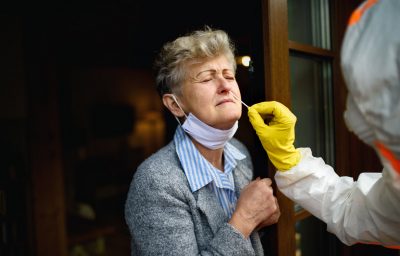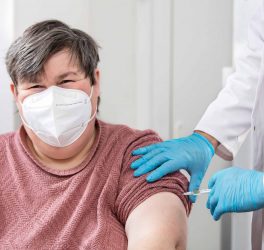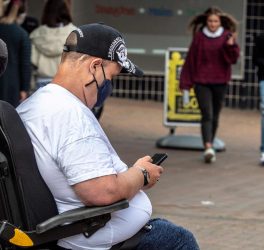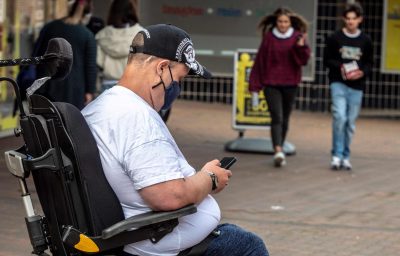
The reopening of commerce generated the need to create a protocol to reduce the possibility of contagion within the stores. Despite this, health measures do not consider people with disabilities or reduced mobility.
The images of people lining up outside commercial premises are increasingly common in communes that are not in quarantine. This, added to the long waiting hours to enter, is what makes these scenarios unsuitable for clients with disabilities or reduced mobility.
Supermarkets, according to Andre Legarreta, coordinator of Accessible City, have been the most empathic with accessibility from the beginning, being the first to create protocols for people with disabilities, in which they implemented priority lines.
From BAU Universal Accessibility, its director, Andrea Boudeguer, also highlighted the initiative of supermarkets, pointing out that without it the experience would be very complex. “When there is no defined priority and an obligation to attend to people with disabilities and those over 65 in a preferential way, a complicated experience is generated for those who want to visit these places.”
Foot sanitizers at the entrance of stores are a clear example of the lack of consideration of people with disabilities in the protocols, which cannot be used by people who use wheelchairs, making their access difficult.
“Nowadays it is still difficult for them to think about people with disabilities when they make protocols,” said Andrea Legarreta. In addition, she added that in climatic events and situations like this, of pandemic, it is people with disabilities who bear the worst of it. “In no case is priority given to people with disabilities or reduced mobility”
The Accessible City Corporation prepared the guidelines “Recommendations for Accessible Cities in Pandemic”, in which it addresses five aspects: Safe and continuous pedestrian circulation, Accessible pedestrian crossings, Accessible parking, Public transport and Access to information. The guideline states that any mobility initiative must apply the principles of universal access, which provides the conditions of equity, security and priority that benefits all citizens.
Enabling access, including priority lines and having the ramps clear are aspects that must be added in the protocols. Including people with disabilities and reduced mobility in all measures, both in pandemic and “normal” times, is essential to building a truly inclusive society.






